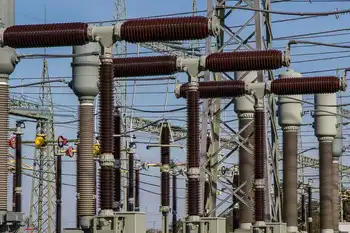- Blackout Builds Interest in Backup Power
Just as the Sept. 11 attacks forced major financial institutions to confront the need for backup data and disaster recovery sites, the August power blackout compelled all kinds of businesses to consider the need for backup power sources and emergency work space.
New Jersey real estate specialists say some companies had been rather hesitant about investing in backup operations during an economic slowdown —at least until the approval of federal regulations requiring resumption of business by financial institutions "crucial to the national economy" within 24 hours of any disaster. Since those regulations were put in place last spring, followed within a few months by the widespread blackout, interest in backup capabilities has again surged, brokers and developers say.
A few companies established "fail-safe" backup operations well before terrorists attacked the World Trade Center; Bear Stearns, the investment bank, for instance, set up secondary offices in New Jersey in the early 90's. Companies are generally secretive about their disaster recovery operations, but one real estate industry professional with knowledge of Bear Stearns's capacity in its Morris County office said there are three turbine generators that could provide enough power for an entire small city.
The recent blackout spurred renewed concern among some companies affected by the Sept. 11 attack and wider concern among smaller and medium-size companies and property owners, commercial real estate specialists say.
Citicorp, based in Manhattan, is searching for a large backup data center in New Jersey, said CB Richard Ellis's managing director in Paramus, Geoffrey L. Schubert, but it has yet to find a site with enough emergency power to meet its capacious needs. State Street Bank is also looking in the state, Mr. Schubert said.
Some New Jersey companies and building owners are adding backup power sources to their existing buildings, according to several brokers and builders. Other companies from Manhattan and elsewhere in the New York metropolitan area are leasing disaster recovery space where workers could go in the event of an emergency and where computers mirror all the data generated at their home offices.
Matthew B. Jarmel, a principal with Jarmel Kizel Architects & Engineers in Livingston, said his firm had recently developed a specialty in emergency power systems. "We have worked with a number of large financial institutions that are required to have disaster recovery and redundant systems since 9/11," he said. "But now we're also seeing small companies outfitting basic office buildings with generators."
Mr. Jarmel said that while each company has specific needs, they all look for "power and fiber, the infrastructure in place to the building."
There are various ways to insure a building will not lose power, Mr. Jarmel said. "Uninterrupted power supply" service is available from power companies, which involves installation of a transfer switch to change the building over to battery power in the event of a power failure. Batteries can keep elevators running, lights shining and computers going for a time, depending on the size of the batteries and the power demands, he said.
In addition, Mr. Jarmel said, a building's power source can be rigged to switch automatically to generators when electrical service is lost. Smaller generators can be powered by natural gas, he said, and larger ones by diesel fuel.
In some cases, companies decide that it is more efficient or economical to lease space from companies providing backup office space equipped with backup power.
A 172,000-square-foot facility in Carlstadt was released leased in its entirety to SunGard, a company that provides backup work space to all types of enterprises — including 47 of the 50 largest financial services companies, said Edward Russo of Russo Development, the Hackensack company that handled the deal. "The blackout made the type of service they provide increasingly sought after," Mr. Russo said.
Related News

Zapping elderly brains with electricity improves short-term memory — for almost an hour
LONDON - To read this sentence, you hold the words in your mind for a few seconds until you reach the period. As you do, neurons in your brain fire in coordinated bursts, generating electrical waves that let you hold information for as long as it is needed. But as we age, these brain waves start to get out of sync, causing short-term memory to falter. A new study finds that jolting specific brain areas with a periodic burst of electricity might reverse the deficit—temporarily, at least.
The work makes “a strong case” for the idea that out-of-sync brain waves in…




